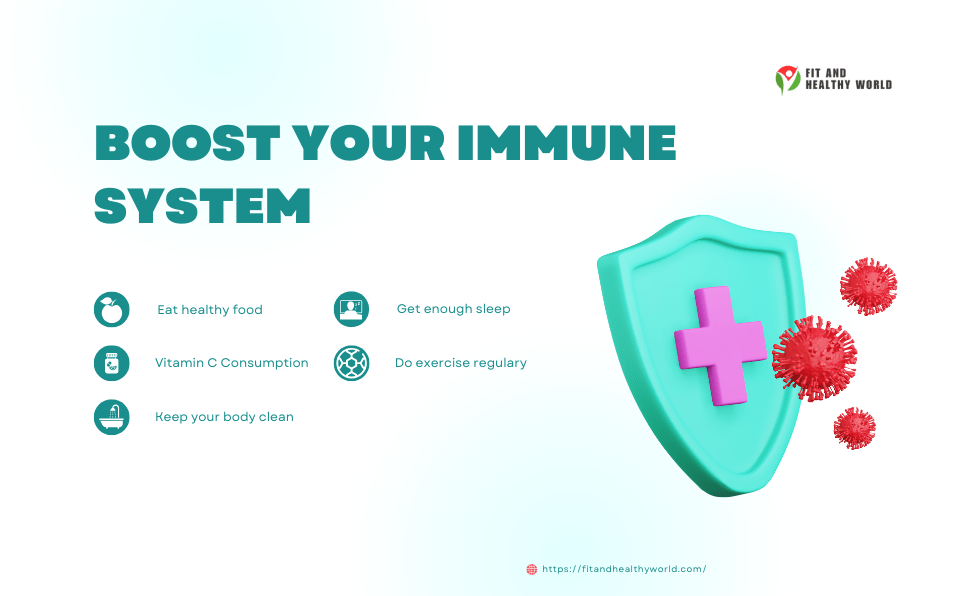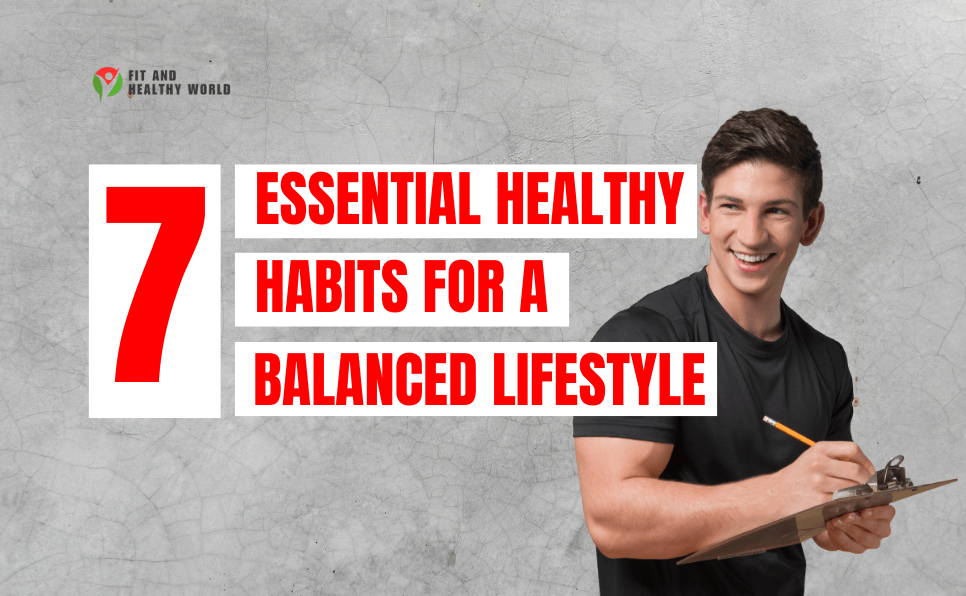You may change your everyday life by learning how to maintain and boost your energy levels. During the day, a lot of people have energy dips and feel lethargic, groggy, or exhausted. However, you may increase your energy levels naturally and simply without using sugar or caffeine. Enhancing energy, dealing daily schedules, and developing habits that indorse long-term vitality are all roofed in this guide. visit Fit and Healthy World.
Good Sleep: The Basis for Long-Lasting Vitality
Getting enough sleep is one of the best methods to increase your energy levels organically. Getting enough sleep helps your body to heal, rebuild, and refresh. Wanting sleep can make you feel sleepy and agitated, which can lower your mood and output.
Maintain an Unvarying Sleep Schedule: Sleeping and waking up at the same time every day helps you succeed your body’s internal clock, which makes it simpler to fall asleep and wake up feeling rejuvenated.
Establishing a relaxing pre-sleep routine involves dropping the lights, avoiding screens, and winning in peaceful searches like deep breathing, stretching, or reading.
Getting between seven and nine hours of good sleep per night might pointedly impact your energy levels.
Healthy Eating Practices to Boost Vitality During the Day
Your eating habits have a direct impact on your emotions and work. Eat meals that are well-balanced and contain the necessary nutrients to maintain a reliable level of energy.
Incorporate Complex Carbohydrates and Protein: Foods high in protein, such as nuts, beans, and eggs, help you feel full and maintain a consistent energy level. Whole grains and other compound carbs provide you fixed energy without the sugar crash.
Choose wisely when you’re starved in between meals by reaching for a piece of fruit, yogurt, or a handful of nuts. These foods are nutrient-dense and won’t raise blood sugar levels.
Prioritizing healthy nutrition promotes physical and mental well-being in count to sustaining energy.
Drinking Water Is an Easy Way to Boost Energy
Dehydration is an everyday yet frequently disregarded cause of exhaustion. Feeling energetic is a result of maintaining blood flow, nutrition delivery, and cognitive function through proper hydration.
Regularly Drink Water: Try to drink eight glasses of water or more each day. To remind yourself to stay hydrated during the day, keep a reusable water bottle with you.
Include Hydrating Foods: Watermelon, oranges, cucumbers, and other fruits and vegetables are high in water content and also comprise vitamins and minerals.
Water is a simple yet powerful tool for collective energy and enhancing focus, so keep it near.
Exercise: Increasing Energy with Movement
Engaging in regular physical activity boosts mood, increases blood flow, and triggers the body’s natural mood enhancers, endorphins. Intense movement is not necessary for its inefficiency.
Get Active in Moderately: Exercises that increase motion, such as walking, cycling, and mild successively, provide the body more energy.
To shun weakness and improve readiness, take movement breaks every hour by standing up, stretching, or going for a walk.
In addition to being good for your physical health, exercise also helps you declutter your mind and feel changed.
Stress Controlling to Preserve Physical and Mental Vitality
Energy can be swiftly short by stress, leaving you feeling worn out. By using stress-reduction strategies, one can enhance mental health and conserve energy.
Try brief thought activities to cultivate mindfulness, even if they are only five minutes long. Being mindful helps you refocus and lower stress.
Found Limits and Take Time Off: Plan breaks to avoid burnout. Stress can be decreased by giving oneself time to relax, whether it be through music or a stroll.
Active stress management saves energy, allowing one to accomplish everyday duties without feeling exhausted. visit Fit and Healthy World.
Avoiding Too Much Caffeine and Sugar for Consistent Energy
Despite providing brief energy increases, sugar and caffeine frequently cause a sharp decline in energy levels, leaving you feeling even more exhausted. Less need on them can contribute to more balanced energy levels.
Reduce Your Feasting of Sugary Snacks: Choose whole grains, nuts, and fruits over sweets. By releasing energy gradually, these foods stop energy dips and spikes.
Reduce Your Caffeine Intake: Green tea has antioxidants that promote overall health and has less caffeine than coffee.
The highs and lows that are habitually connected to sugar and caffeine can be avoided by focusing on natural energy sources.
Fresh air and sunlight: two of nature’s natural energy boosters
One of the best ways to rejuvenate and invigorate is to spend time outside. While fresh air helps the mind to cleanse, sunlight boosts the creation of serotonin, which controls mood and energy levels.
Get Some Sunlight in the Morning: Receiving some sunlight in the morning helps you wake up and sleep better, which makes you more awake all day.
Take Breaks to Breathe: Whenever you feel tired, spend a few minutes outside. Walking a short distance might boost your oxygen levels and give you more energy.
Getting outside is one of the meekest and most fun methods to boost your energy and mood.
Keeping Things Organized to Avoid Mental Fatigue
Disorder and clutter can cause mental exhaustion by raiding you of focus and energy. Maintaining a routine and an orderly workstation keeps you focused and at ease.
Prioritize your tasks: To avoid becoming speechless, concentrate on finishing the most important ones first and work on one at a time.
Ensure Your Workspace Is Clean: Mental clearness is enhanced in an environment devoid of clutter. Make time every day to clean up and maintain a relaxed and useful workstation.
A strong tool for mental energy is organization. It helps you declutter your mind as well as your physical area.
In conclusion
The key to learning how to upsurge your energy levels progressively is to make modest but significant changes to your lifestyle. You may nourish your body and mind without depending on Band-Aid resolutions by emphasizing a healthy diet, frequent exercise, hydration, and good sleep. Long-lasting vigor and an improved sense of interests can result from embracing natural energy enhancers like sunlight and mindfulness while maintaining organization. Slowly implement these techniques to live a more active and satisfying life. visit Fit and Healthy World.
Frequently Asked Questions (FAQs)
What can I do to get more energy?
Eat well-balanced meals, drink plenty of water, and make sure you get abundant sleep to boost your energy levels. Stable energy is kept through gradual, small adjustments.
What’s producing my lack of energy?
Dehydration, sleep deficiency, poor food, and long-term stress are common causes of low energy levels. To identify opportunities for upgrading, assess your everyday routine.
What is the quickest method for locating energy?
Energy boosts can be achieved quickly by eating a nutrient-dense snack, drinking water, or getting some fresh air.
How can I eat more energy?
Healthy eating, regular exercise, and stress lessening all contribute to the production and maintenance of energy.
What’s the most effective method to increase energy?
The best strategies for sustaining reliable energy are frequent exercise, a healthy diet, and getting enough sleep.
Before working out, how can I increase my energy levels?
30 minutes already to go out, have a light snack, such as a banana or a handful of nuts, to increase your energy levels.
How do I gain more energy once I’m sixty?
To sustain energy levels as you age, engage in modest exercise, consume a healthy diet, and give rest a priority.
How can I maintain a high level of energy from place to place 3 p.m. every day?
Around 2:30 pm, schedule a healthy meal and go for a quick stroll to increase blood flow. Steer clear of sugary snacks as they can activate energy drops.
How can a reserved person like me learn to get energy from others?
Establish bounds while having meaningful talks that you find meaningful. Focus on constructive relationships and engage in active listening.



